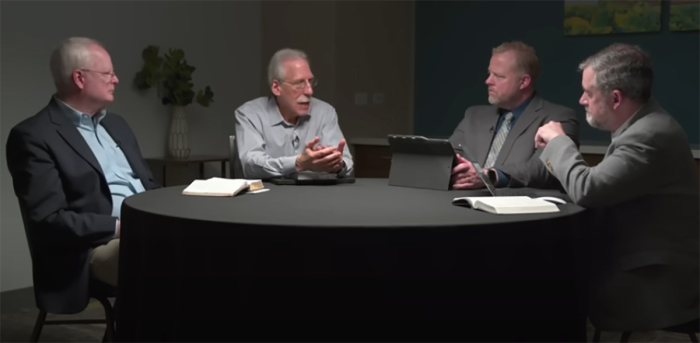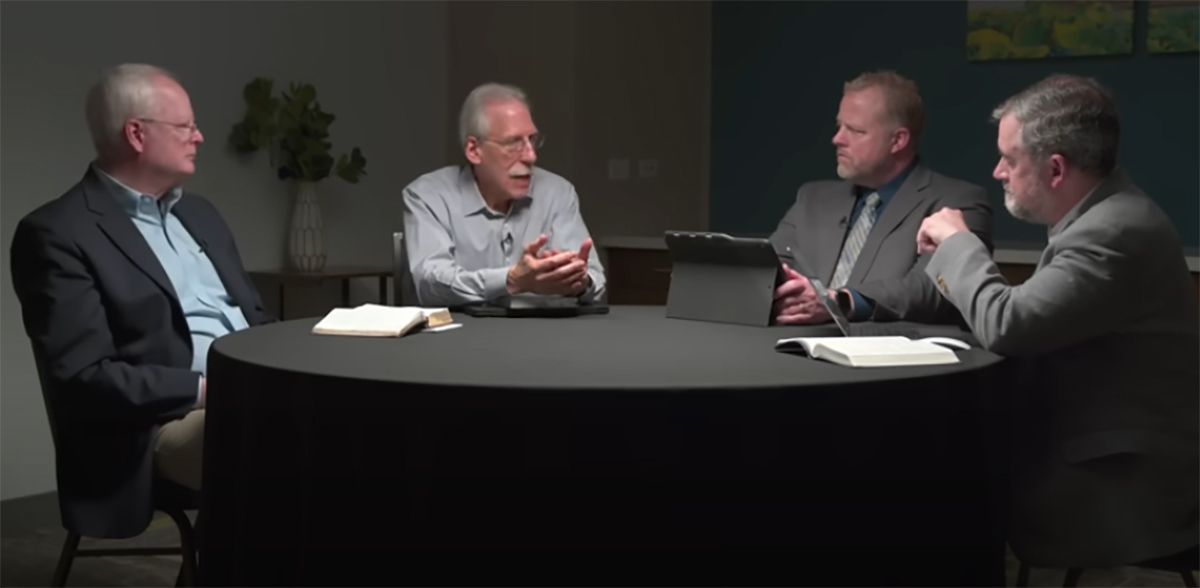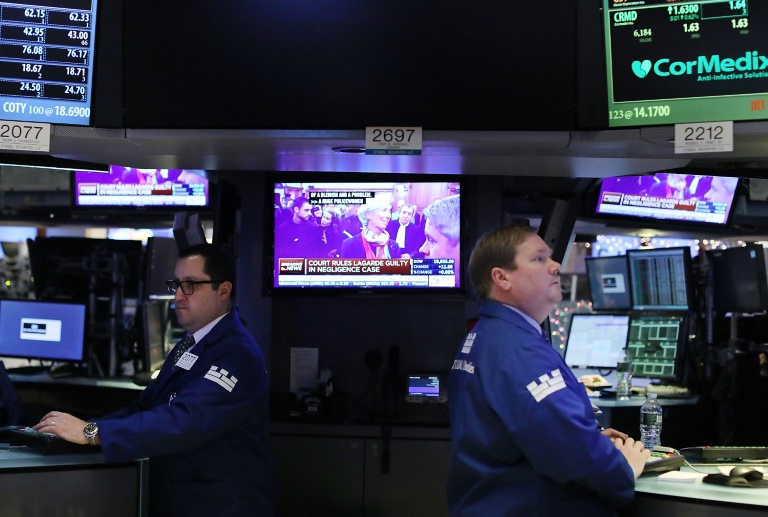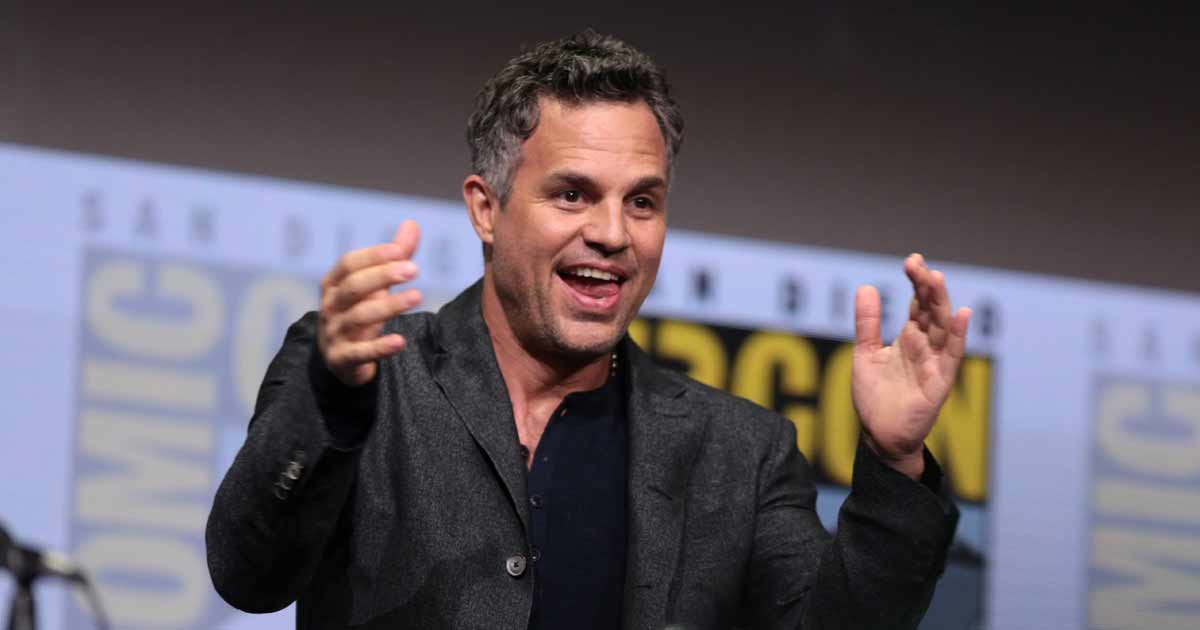
Lifestyle Christianity leader Todd White and his “healing miracles” were the subject of debate between leading biblical scholars as part of a larger conversation about the complexity of navigating faith and skepticism in the realm of supernatural phenomena.
White was the topic of conversion during the conclusion of a four-hour roundtable discussion between Justin Peters of Justin Peters Ministries and Jim Osman, author and pastor of Kootenai Community Church, and Michael Brown, host of “The Line of Fire” podcast, and Sam Storms, pastor emeritus of Bridgeway Church in Oklahoma City.
Read more about this discussion here, here, here and here
Peters and Osman believe in the cessation of certain miraculous gifts, like prophecy and healing, while Brown and Storms believe in the continuation of those gifts.
“I would see no difference in the number of people wearing eyeglasses and the number of people on crutches in the charismatic churches than I would in the cessationist church,” Peters began, questioning the authenticity of supernatural healings.
Peters then directed the conversation toward White’s methods, particularly his famed “leg-lengthening” miracle, which has been debunked as a staged act. White has also been criticized for promoting the prosperity gospel, which teaches in part that believers have a right to the blessings of health and wealth.
“It’s intentional deception,” Peters said, adding that White “never talks about sin … never talks about God’s wrath.”
Storms countered by stressing that while he doesn’t know White personally, he knows from “credible witnesses that he has led hundreds of people [to] saving faith in Christ.”
Brown, who has had White as a guest on his “Line of Fire” podcast in the past, agreed that he’s heard the evangelist clearly “call out sin” in his live messages and believes he has a genuine passion for healing sick individuals.
“Behind the scenes, whenever we talk it was always about Jesus, about loving God, about the Word of God … he had tremendous excitement about praying for the sick. … My knowledge of Todd is, behind the scenes, him being as raw and open, everything he’s done is sincere. … If he willingly has deceived all these people, then how is it that so many have attested, lasting healing afterwards?”
Storms suggested that instead of using incidents like White’s actions as fodder for mockery or skepticism, people should focus on following biblical commands, such as praying for the sick. He criticized the tendency to parade such instances to create cynicism rather than addressing “charlatans” directly with evidence.
“It feels like this is being paraded to mock and to create a cynical, skeptical mindset in people rather than saying, ‘You know, there are charlatans out there, too bad. Let’s expose them when we have evidence to that effect. But in the meantime, let’s obey God’s Word, let’s earnestly desire spiritual gifts … because if you’re not, you’re sinning.”
In response, Osman said that White’s tactics make a “mockery of the true gift of healing and the truth of God to heal.”
“I think these guys are the ones making a mockery of it,” he said. “These are men that are mocking what you guys believe.”
“To say that Todd White loves God, that He loves people, I would say no, he does not. I mean, if I love someone, and if I love God, I’m not out there intentionally deceiving people,” Peters agreed.
Brown argued against dismissing White’s ministry solely based on skepticism, urging a balanced approach that he avoids perpetuating negative stereotypes about charismatic Christianity.
White, he said, is “someone who spends hours and hours in the presence of God every day,” shares “the Gospel day and night,” urges “young people to turn from sin” and “preaches against sexual sin and other things in the strongest possible terms.”
“I have people that have gone on the street with him and told me what they saw God do,” he said. “I’m not just going to say, ‘I know where he’s working cheap parlor tricks.’
“It undercuts the other things … the picture that people get is this is the charismatic norm, is ‘they’re a bunch of charlatans and frauds and you can’t trust any miracle reports it.’ It produces a negative fruit of skepticism and cynicism. It is not a fruit of the Spirit, any more than gullibility is a fruit of the Spirit.”
“Your skepticism regarding these proofs is the same as our skepticism regarding your proofs,” Osman said. “You’re skeptical of this, we’re skeptical of the evidence that you give for some of the miraculous. There’s skepticism on both sides of the table. It’s just what we’re skeptical about.”
In 2020, White, a former drug addict-turned-evangelist, claimed he’d undergone a season of painful “pruning” where God impressed upon him the importance of preaching on the topic of sin and the need for a Savior.
“I feel like I haven’t preached the whole Gospel. And I repent. I repent. You have no idea. I will not be responsible. I believe that when I preach that the blood of people is on my hands,” he said at the time.
The debate over White’s practices was part of a larger conversation between the four men about the biblical criteria for labeling someone a false teacher or prophet.
All participants agreed that a false teacher promotes heresies that are fundamentally at odds with the core doctrines of Christianity, such as the deity of Christ, salvation by grace through faith and the resurrection.
However, they disagreed on whether individuals — like Benny Hinn and Sid Roth — who have made significant errors in their teachings but later repented could still be considered false teachers.
“Speaking personally … I am reluctant to pass judgment on the eternal state of an individual’s soul so long as that individual does not overtly and explicitly deny foundational, biblical fundamental truths of the Gospel,” Storms said.
“They may be quirky in terms of their personality. They may be manipulative in terms of their ministry style. They may have distorted views of money. The whole prosperity gospel, I think we all agree, it’s abominable. But many of those who affirm it believe they have biblical grounds for it; they actually believe in their heart and their soul that that is God’s design for how Christians are to live. … I’m not going to consign [Hinn] to Hell until I see explicit unrepentant immorality, idolatry and denial of the foundations with faith.”
However, Osman pointed out that Hinn never publicly repented for teaching a “nine-member godhead” heresy several decades ago and continues to use the prosperity gospel to fleece the poor, which he said qualifies him as a false teacher.
“You think that Benny Hinn is a man who loves Jesus, loves Christ,” Osman said, addressing Storms.
“I would submit to you that any man who gives false prophecies, doesn’t care enough about God to put words in His mouth that He does not say, bring reproach on God, who knowingly puts forth false miracles, fake signs and wonders, does that knowingly, intentionally, and for decades tells the poor and sick people, ‘Give me money and God will bless you’ — that’s not someone in my book who loves Christ. That’s someone who hates Christ. That’s someone who hates the Christ of the Bible. He may love a Jesus that he’s created out of his own image, but he doesn’t love the Jesus of the Bible. Where is the conviction of the Holy Spirit in this man? Where’s the correction?”
Leah M. Klett is a reporter for The Christian Post. She can be reached at: [email protected]








